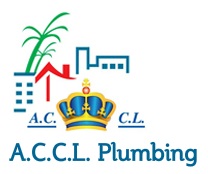Rainwater harvesting is the collection and storage of rainwater for non-potable uses, such as irrigation, toilet flushing, and washing machines. This sustainable practice reduces the demand on municipal water supplies, decreases stormwater runoff, and provides a free source of water for various applications. In this article, we’ll explore the benefits, systems, and applications of rainwater harvesting.
Benefits of Rainwater Harvesting
1. Water Conservation: Rainwater harvesting reduces the demand on municipal water supplies, conserving water for potable uses.
2. Stormwater Management: By collecting rainwater, we can reduce stormwater runoff, which can help alleviate flooding and erosion.
3. Cost Savings: Using rainwater for non-potable purposes can lead to significant cost savings on water bills.
4. Environmental Benefits: Rainwater harvesting reduces the amount of stormwater that enters waterways, carrying pollutants and sediments.
Rainwater Harvesting Systems
1. Roof-Based Collection: Rainwater is collected from rooftops and stored in tanks or cisterns.
2. Ground-Based Collection: Rainwater is collected from ground surfaces, such as parking lots or driveways.
3. Storage Tanks: Rainwater is stored in tanks or cisterns, which can be above-ground or below-ground.
Applications of Rainwater Harvesting
1. Irrigation: Rainwater can be used for irrigation in gardens, lawns, and agricultural fields.
2. Toilet Flushing: Rainwater can be used for toilet flushing, reducing the demand on municipal water supplies.
3. Washing Machines: Rainwater can be used for washing machines, reducing the amount of potable water used.
4. Industrial Processes: Rainwater can be used in various industrial processes, such as cooling systems and cleaning.
Considerations for Rainwater Harvesting
1. Water Quality: Ensure the collected rainwater is of suitable quality for the intended use.
2. System Design: Design the rainwater harvesting system to meet the specific needs of the application.
3. Maintenance: Regularly maintain the system to ensure optimal performance and water quality.
4. Regulations: Check local regulations and guidelines for rainwater harvesting and use.
Conclusion
Rainwater harvesting is a sustainable practice that offers numerous benefits, including water conservation, stormwater management, and cost savings. By understanding the systems and applications of rainwater harvesting, individuals and organizations can make informed decisions about implementing this practice. Whether for irrigation, toilet flushing, or industrial processes, rainwater harvesting provides a valuable source of water for non-potable uses.

